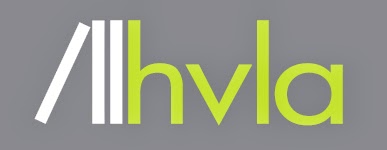Summertime can be ideal for catching up on reading for pleasure, especially for HVLA members, who often don't have time during the school year. The HVLA board asked the HVLA community to share a book read, currently being read, or to be read during this summer.
Here's what HVLA members are reading (in alphabetical order):
Maria said, "I am reading Zinn's People's History for a book club through the Human Rights Pen Pal group that matches incarcerated folks with people on the outside. I thought the graphic novel might be a good way to supplement it."
Constance said, "Gorgeous writing, makes you see and feel what our forests were like in a world before mass industry, electricity, and clear-cutting."
Susan said, "Loved Wolf Hollow."
Sarah said, "Starred, but controversial - Loved it!"
Angela said, "I think of this book as The Monuments Men, but for librarians. Can't wait to read it."
Hanna said, "Highly recommended by my colleagues."
An HVLA member said, "It was a very original first person narrative. I couldn't put it down."
Patricia said, "It's a mash up of science, historical fiction, horror, and feminism set during the Victorian era."
Michael said, "Recommended by a close friend. The intertwining of a memoir and a true crime case together made for a richer book about the two of them than if they were a stand alone."
Jennifer said, "I'm a big fan of the author and and also enjoying reading memoirs."
Gili said, "I chose Stevenson's book because I had heard his quote, 'The opposite of poverty is not wealth. In too many places, the opposite of poverty is justice.' After hearing this, I knew I had to learn more from this brilliant, articulate lawyer fighting for justice."
Gili said, "So many layers and such an original storyline. I'm perpetually in awe of women graphic novelists. I can't wait for the second one to come out in October!"
Laura read The Other Einstein.
Cheryl said, "Saw it on NetGalley, was drawn to the cover and description, and publishers were promoting it at ALA. It's set in NYC housing projects (Harlem). Protagonist is an African-American boy whose passion is building with Legos. It feels like an authentic picture of life in an under-served community, and I love the motif of architecture throughout."
Christine said, "This book was recommended to me and is absolutely one of the best YA Fantasy books I have read in a really long time. The concept is so original and different from anything else out there. The character development and world-building are spectacular- I can't wait for the next one!"
Lisa said, "It came highly recommended by a friend and I have a deep need to know the world can swerve and rediscover its humanity."
Megan said, "It's a novella so it's a quick read. It's AMAZING!! Will be a great book for discussion."
Eve said, "Adam Haslett is a terrific writer of realistic fiction--the kind that probes people's psyches. It's the second book of his that I've read. In Union Atlantic, he delves into the not-so-ethical world of finance, but don't worry if you're not an expert in this field....the drama between the characters will carry you through."
Stacy said, "I loved the first one. This one is just as good!"
Mary said, "Because I love her books--she's dark and funny at the same time, and she never disappoints. Some people characterize this and a few of her other books as 'crime,' but it still reads like a regular novel. Great characters."
Elizabeth said, "I chose tribute in prose and verse to Alexie's artistic, abusive, extraordinary mother Lillian Cox Alexie because of my affection and respect for the author's other works, including the YA The Absolutely True Diary of a Part-Time Indian and the picture book Thunder Boy Jr. It's also a great read for those interested in Native identity, mental illness, the effects of the American colonization and cycles of abuse."
Laura read The Zookeeper's Wife.


































